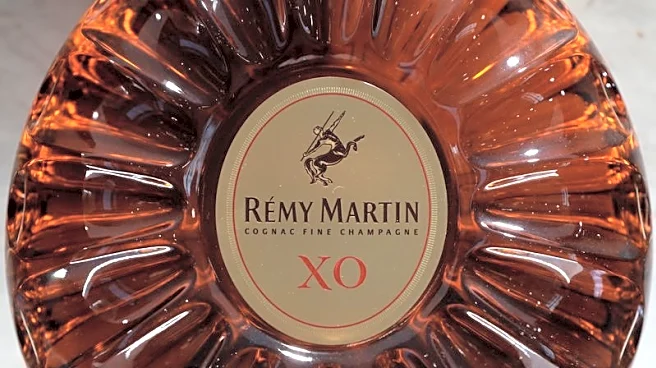By Dominique Vidalon
PARIS (Reuters) -French spirits maker Remy Cointreau again pushed back its recovery on Thursday, as it cut its 2025/26 sales and profit goals, citing deteriorating market conditions in its key Chinese market and a weaker-than-expected rebound in sales in the U.S.
This came after the maker of Remy Martin cognac and Cointreau liqueur reported a worse-than-expected 11% decline in second-quarter sales, reflecting tougher market conditions in China, and a later-than-usual timing of China's
Mid-Autumn Festival.
Sales have slumped in Remy Cointreau's key U.S. and Chinese markets in recent years, forcing the company into multiple guidance downgrades and to scrap medium-term sales targets. The company had said in June, though, that the worst was over.
The entire spirits sector has suffered as a sales boom seen after the COVID-19 pandemic went into reverse, more recently exacerbated by tariffs on cognac imports in China and on EU goods entering the U.S.
But Remy, which makes 70% of its sales from cognac, mostly in the U.S. and China, has suffered more than its peers.
Sales reached 268.8 million euros ($313.5 million), marking a like-for-like decline of 11% in July-September, worse than average analysts' expectations for a 9% decline in a company-compiled consensus.
Cognac division's sales fell 13.5% in the second quarter, reflecting mostly a sharp fall in China. In contrast, the Americas region posted a second consecutive quarter of strong growth, supported by a very favourable basis of comparisons and continued sequential improvements in depletions, the group said.
Remy said it now expects organic sales growth for the full-year 2025/2026 to range from between stable and low single digits, compared to its previous forecast for a mid-single-digit percentage organic growth.
The group also now expected an organic decline in annual current operating profit of between low double digits and mid teens, versus mid-single-digit decline previously forecast.
($1 = 0.8575 euros)
(Reporting by Dominique Vidalon;Editing by Rashmi Aich and Sudip Kar-Gupta)















